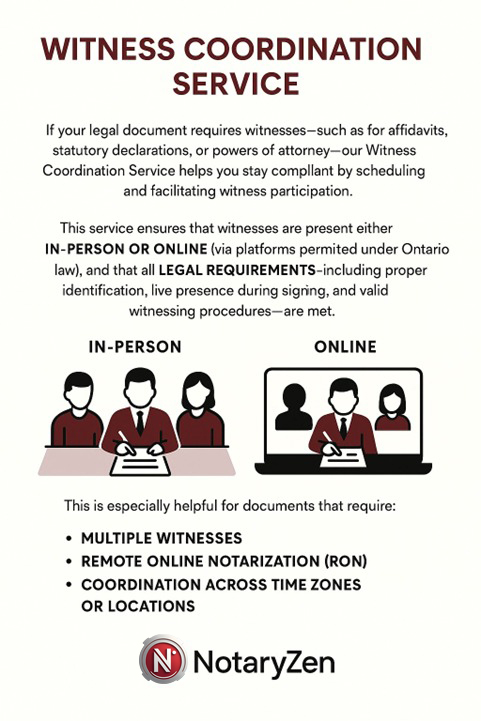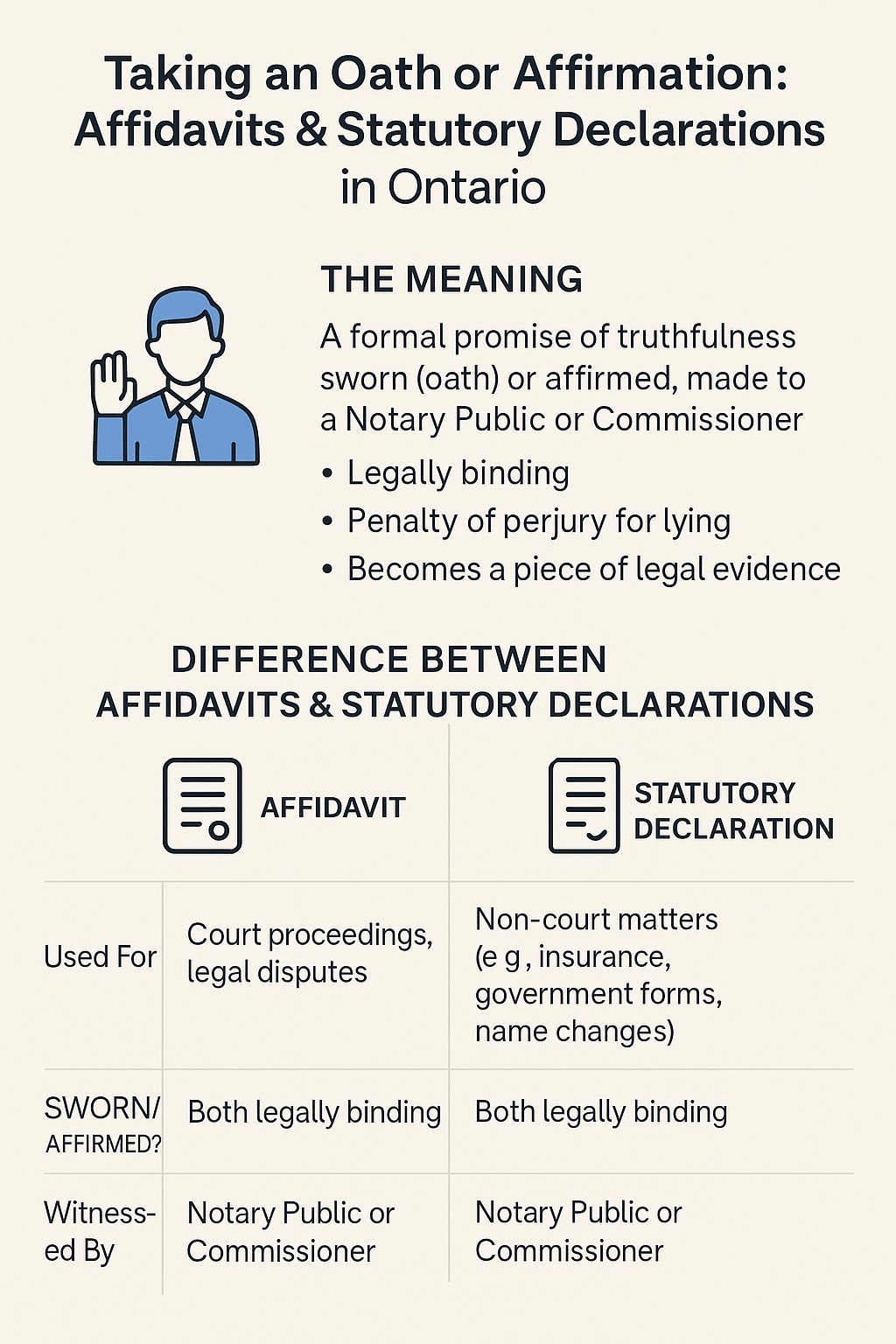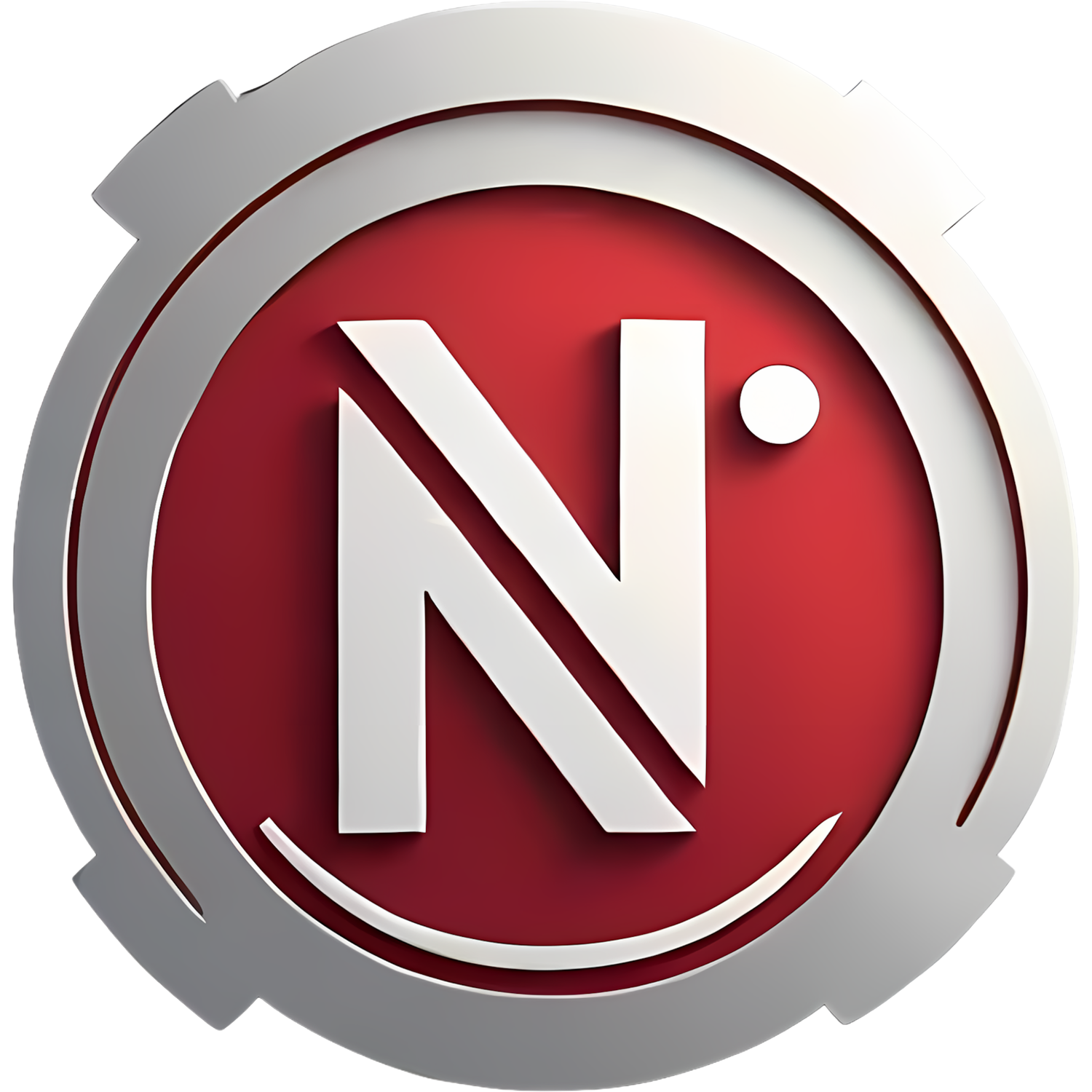Pros of a Notary Witnessing and Signing Your Documents
✅ Legal Validity
- •A notary public's signature and seal confirm that a document was signed willingly and properly witnessed, making it legally recognized and harder to dispute.
✅ Fraud Prevention
- •Notaries verify identities and ensure parties are signing voluntarily, reducing the risk of fraud, coercion, or identity misuse.
✅ International Acceptance
- •Notarized documents are often required for use abroad, especially when combined with an Apostille or legalization, ensuring cross-border credibility.
✅ Evidentiary Strength
- •A notarized document may carry more weight in court as it provides verified proof of execution and witness.
✅ Compliance with Legal or Institutional Requirements
- •Many institutions (banks, courts, government bodies) mandate notarization for certain documents like affidavits, powers of attorney, and property transactions.

⚖️ Affirmation vs. Oath: What's the Difference?
| Feature | Oath | Affirmation |
|---|---|---|
| Definition | A solemn promise invoking a higher power (e.g., God) | A non-religious solemn declaration |
| Used by | Individuals with religious beliefs | Individuals with no religious beliefs or preferences |
| Language | Includes references to God or a deity | Secular, no religious references |
| Legal Standing | Equal – both are legally binding declarations | Equal – both are legally binding declarations |
✅ Essentials for Notaries When Administering Either
| Step | Explanation |
|---|---|
| 1. Verify Identity | Confirm identity using valid photo ID (passport, driver's licence, etc.) |
| 2. Ensure Voluntariness | Make sure the individual is not under duress and is signing willingly |
| 3. Ask Their Preference | Ask: "Do you wish to swear an oath or affirm the truth of your statement?" |
| 4. Administer Proper Statement | Use the appropriate wording (see examples below) |
| 5. Sign and Date | Have the declarant sign the affidavit in your presence; you sign and stamp |

